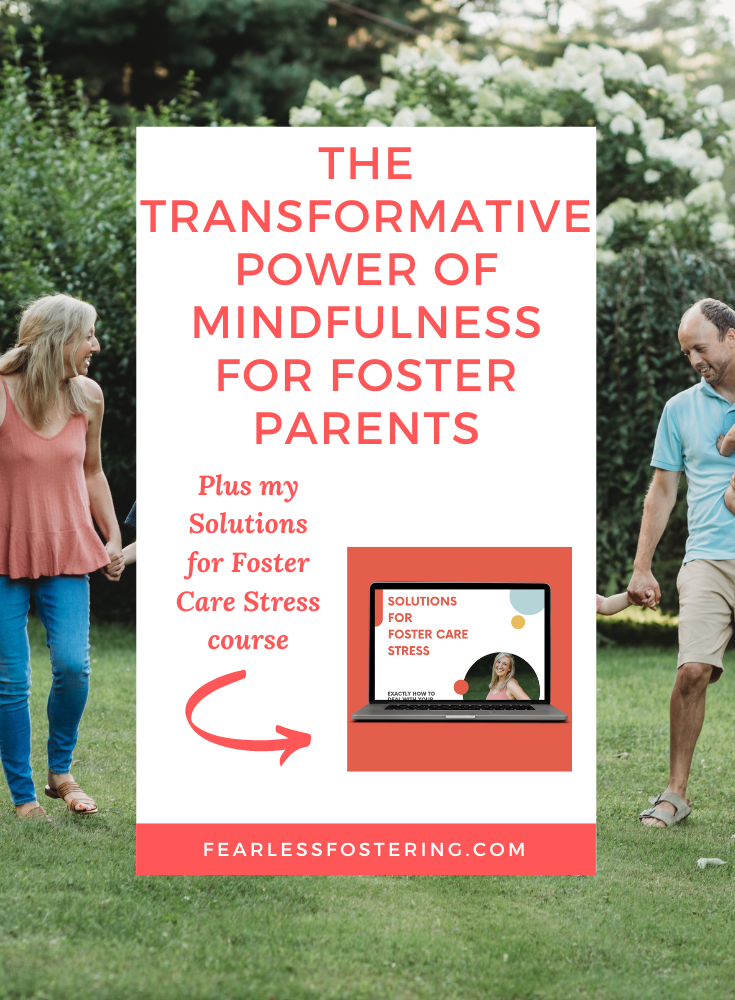
Foster parenting is an incredible and rewarding journey, filled with challenges and joys. Caring for children who have experienced trauma requires immense compassion, patience, and resilience. In the midst of this demanding role, fostering a mindfulness practice can have a profound impact on both foster parents’ well-being and the children in their care. Mindfulness offers a powerful toolset that cultivates self-awareness, empathy, and emotional regulation. In this blog post, we will explore the significance of practicing mindfulness for foster parents and how it can enhance their ability to provide stable, nurturing environments for children in need.
Cultivating Self-Awareness
Mindfulness is the practice of paying attention to the present moment with non-judgmental awareness. For foster parents, developing self-awareness through mindfulness allows them to recognize their own emotions, triggers, and limitations. By being attuned to their own needs and reactions, foster parents can better understand how their emotions may impact their caregiving role. This self-awareness enables them to respond rather than react in challenging situations, offering stability and consistency to children who may be struggling.
Enhancing Emotional Regulation
Foster children often experience a range of complex emotions due to their past experiences and transitions. By practicing mindfulness, foster parents can develop emotional regulation skills that allow them to remain calm and composed in the face of difficult emotions and behaviors. Mindfulness helps foster parents observe their own emotional states without judgment, creating space for thoughtful responses rather than impulsive reactions. This emotional regulation not only models healthy coping mechanisms for children but also helps foster parents build resilience in the face of adversity.
Fostering Empathy and Connection
Mindfulness fosters empathy by encouraging individuals to be fully present and attuned to others’ experiences. As foster parents integrate mindfulness into their daily lives, they become more attuned to the emotional needs of the children in their care. By listening actively, showing genuine interest, and responding with compassion, foster parents can create a safe and nurturing environment where children feel seen, heard, and understood. This connection strengthens the caregiver-child bond and supports the healing process for children who have experienced trauma or neglect.
Self-Care and Preventing Burnout
The demanding nature of foster parenting can lead to burnout if self-care is neglected. Mindfulness practices offer foster parents an opportunity for self-care and replenishment. By carving out time for mindfulness exercises such as meditation, deep breathing, or gentle movement, foster parents can recharge their emotional reserves, reduce stress, and enhance their overall well-being. Engaging in self-care through mindfulness not only benefits the foster parents but also models healthy self-care practices to the children under their care.
Practicing mindfulness is a transformative tool for foster parents, enabling them to navigate the complex challenges of fostering with compassion, resilience, and self-awareness. By cultivating self-awareness, enhancing emotional regulation, fostering empathy, and engaging in self-care, foster parents can provide stable, nurturing environments where children can heal and thrive. Mindfulness equips foster parents with the skills and mindset needed to navigate the ups and downs of foster parenting, making it an invaluable practice for those who choose to embark on this meaningful journey.
+ show Comments
- Hide Comments
add a comment